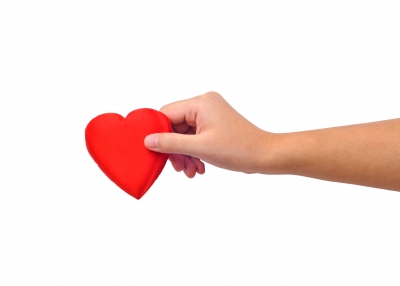
Codependent people would literally give away everything to save someone else.
Image courtesy of Teerapun / FreeDigitalPhotos.net
Codependence is a problem nearly as destructive as an addiction. “It is also known as “relationship addiction” because people with codependency often form or maintain relationships that are one-sided, emotionally destructive and/or abusive” (http://mentalhealthamerica.net/go/codependency). Sometimes it is referred to as co-addiction. Here is a hypothetical example of codependent behavior: Julia is a mom with a 26 year old son named Trevor. Trevor has an addiction to heroin. Julia spends all her time and energy trying to fix Trevor’s problem even though Trevor does not yet want to quit. Julia has taken out a loan against her house to pay for rehabs, continues to make payments on Trevor’s car so his credit does not go down, buys him food because “at least I’m not buying him drugs,” and constantly begs him to attend recovery meetings. Julia frequently sets down boundaries she cannot enforce. She told Trevor last week if he ever used drugs in her house she would put him out on the street. He did, and then he apologized and promised not to do it again. She forgave him and told him that was his last chance. This is the fifth time that has happened.
www.codependents.org is a good resource for someone who thinks they might have codependency. Therapy is also very important in this situation. It requires a lot of support to let someone go that you love and care for. It is extremely scary, but addicts usually have to experience rock bottom to finally realize their drug of choice isn’t worth it. If you’re codependent, you might be delaying that moment of truth for the addict in your life. Codependency can also happen in other situations. When someone you love is doing anything they shouldn’t you can be codependent to their behavior. Here is one I’ve seen quite a bit: Your teenager becomes sexually active with their girlfriend/boyfriend. You are against them having sex at their age, but you also worry about the possible consequences they might experience at their age without adult guidance. I’ve seen parents in this situation tell their teenage child to start having sex in their own room at home so that “At least there is an adult around if something goes wrong.” The parent then feels they can control the outcome better by making sure their home is stocked with condoms, etc. The problem here though is enabling a behavior the parents are not okay with.
If you need help determining whether you might be enabling your teen’s bad choices, or whether your teenager is codependent to someone else in their life, send us an email, give a call or just comment on this post. Let’s see if we can help you sort out the difference between helping and helping too much.
Helping teens grow and families improve connection,
Lauren Goodman, MS, MFT



